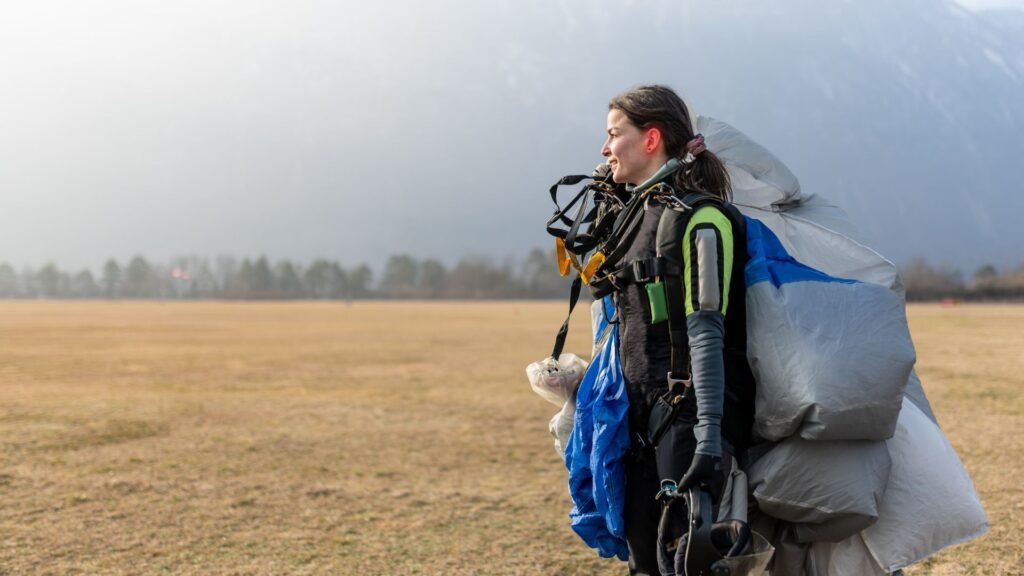Imagine soaring through the sky, feeling the rush of wind and the thrill of skydiving. But what about your ears? In this article, we uncover the impact of skydiving on your ears. We’ll explore the science, share expert insights, and provide essential tips for keeping your ears safe during outdoor jumps.
Understanding ear anatomy
Before we explore the effects of skydiving on our ears, let’s have a quick refresher on ear anatomy. Our ears consist of the outer, middle, and inner ear. The middle ear houses the eardrum and a small air-filled space connected to the back of our throat via the eustachian tube.
Can skydiving damage your ears?
If you take the right steps and know the possible risks, skydiving won’t hurt your ears. But you need to be careful because if you make uninformed choices or don’t take care of your ears, it can cause discomfort or even damage your eardrum.
So, it’s important to put ear safety first, make smart choices, and have an enjoyable skydiving experience without any worries.
The science behind ear pain in skydiving
During a skydiving experience, rapid pressure changes occur as you descend from high altitudes. These changes can affect your ears, causing discomfort or pain. Barotrauma, a condition resulting from unequal pressure between the inner and outer ear, is one potential outcome.
Symptoms include ear popping, ear pain, muffled hearing, or even temporary hearing loss. While the majority of skydivers experience only mild discomfort, it’s essential to be aware of the risks and take necessary precautions.
Expert insights and personal experiences
To gain deeper insights, we interviewed experienced skydivers, instructors, and ear specialists. Their expertise sheds light on the matter. Skydivers shared personal anecdotes recounting moments of ear-related issues during jumps, highlighting the importance of understanding potential risks.
Ear specialists confirmed that outdoor skydiving can indeed cause ear discomfort, emphasizing the significance of proper ear care.
Tips for protecting your ears while skydiving
If you’re an aspiring skydiver or a seasoned pro looking to protect your ears, here are some valuable tips to keep in mind:
- Properly equalize ear pressure: Prior to the jump and during the descent, practice proper ear equalization techniques. This includes yawning, swallowing, or gently pinching your nose and blowing air against a closed mouth to equalize pressure.
- Utilize specialized ear protection: Consider using specialized earplugs or earmuffs designed for skydiving. These help regulate pressure changes and minimize discomfort.
- Seek medical advice: If you have pre-existing ear conditions or concerns, consult with a medical professional before engaging in skydiving activities. They can offer personalized guidance and advice based on your specific situation.
- Gradual ascent during tandem jumps: For tandem jumps, ensure a gradual ascent to allow your ears to adjust to pressure changes more smoothly. This can reduce the risk of sudden discomfort or barotrauma.
Beyond skydiving: Ear health maintenance
While skydiving can put extra strain on your ears, it’s essential to remember that ear care extends beyond the world of adrenaline-fueled jumps. Maintain general ear health by avoiding exposure to excessively loud noises, practicing good hygiene, and seeking prompt medical attention if you experience persistent ear discomfort or hearing issues.
Protect your ears, maximize your thrills
Skydiving offers a unique experience, but it’s important to be mindful of potential risks and take steps to protect your ears. While skydiving ear pain can occur due to pressure changes, proper ear care and equalization techniques can help minimize discomfort. By following expert advice, utilizing specialized ear protection, and seeking medical guidance when needed, you can enjoy the adventure while safeguarding your ear health. So, embrace the skies, conquer your fears, and let your eardrums dance to the rhythm of the freefall.

